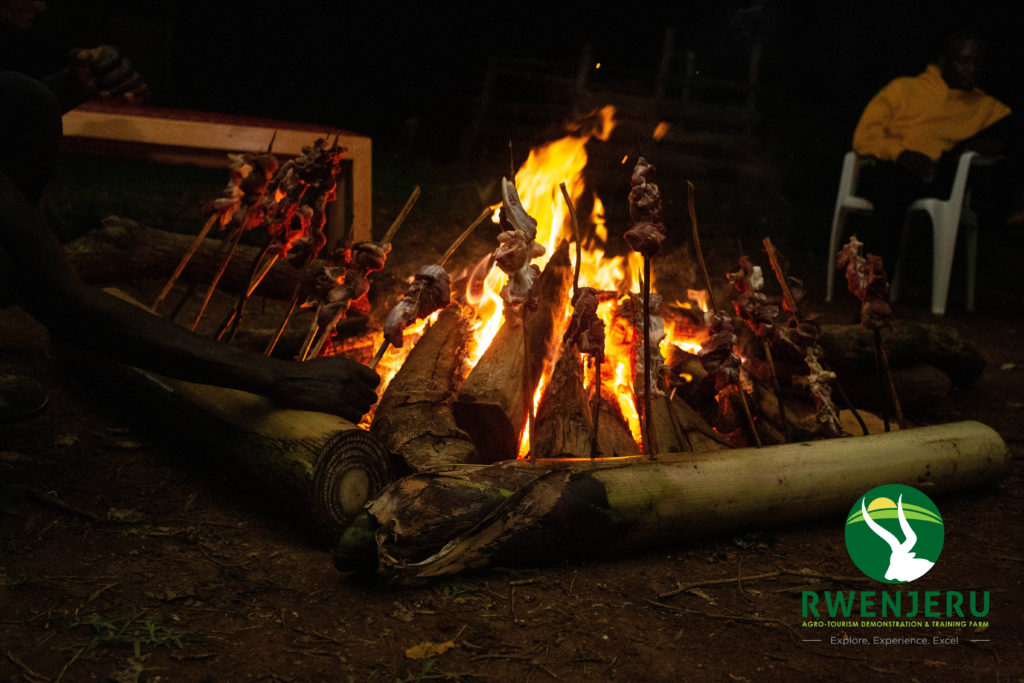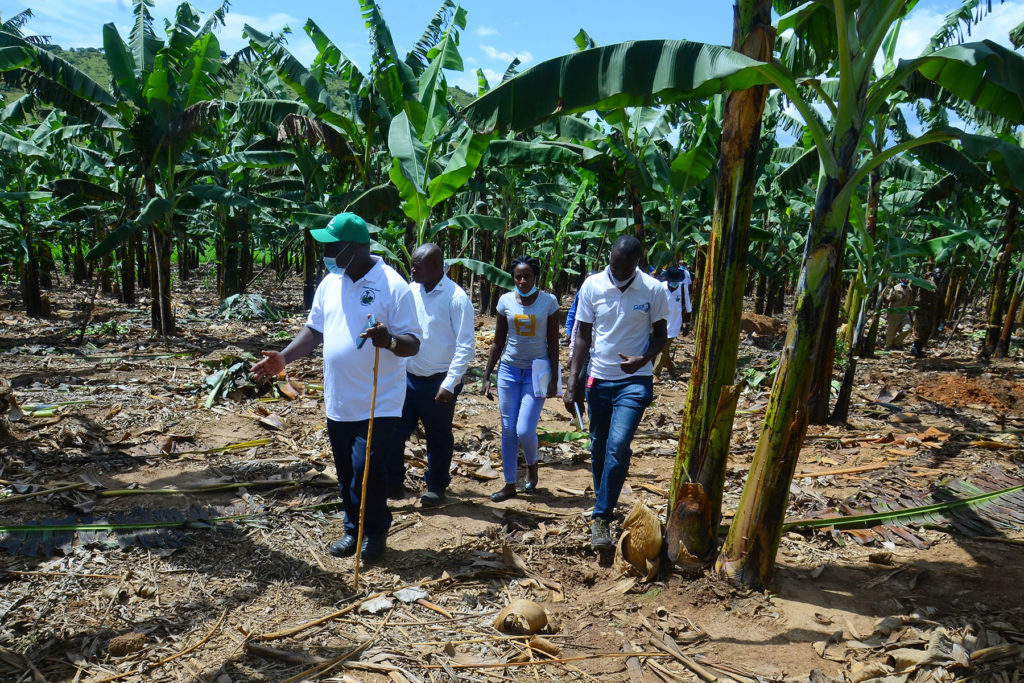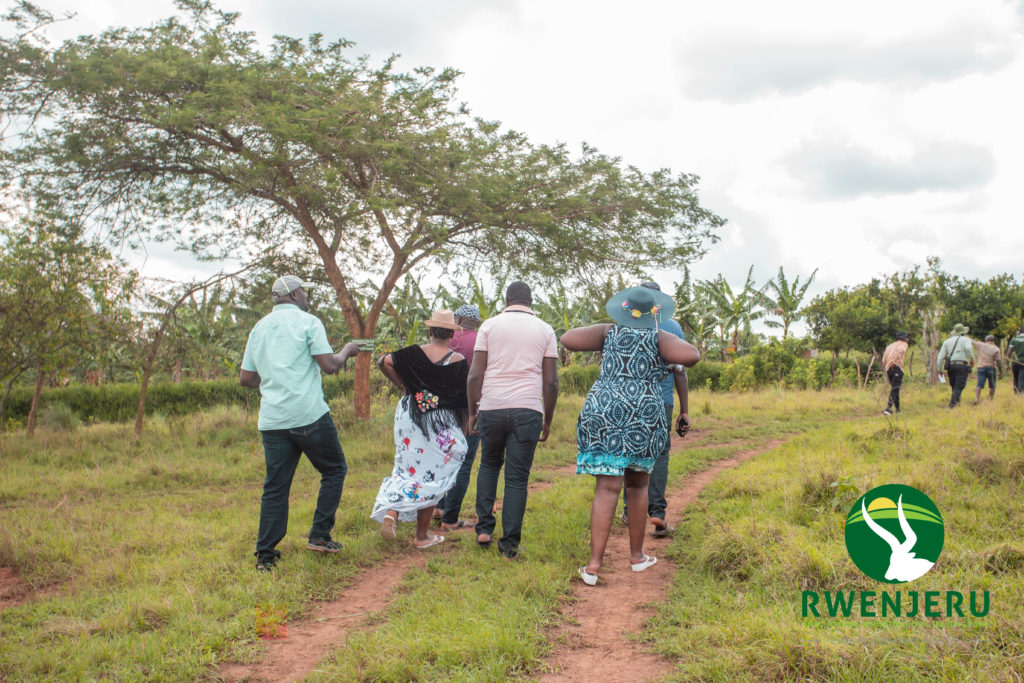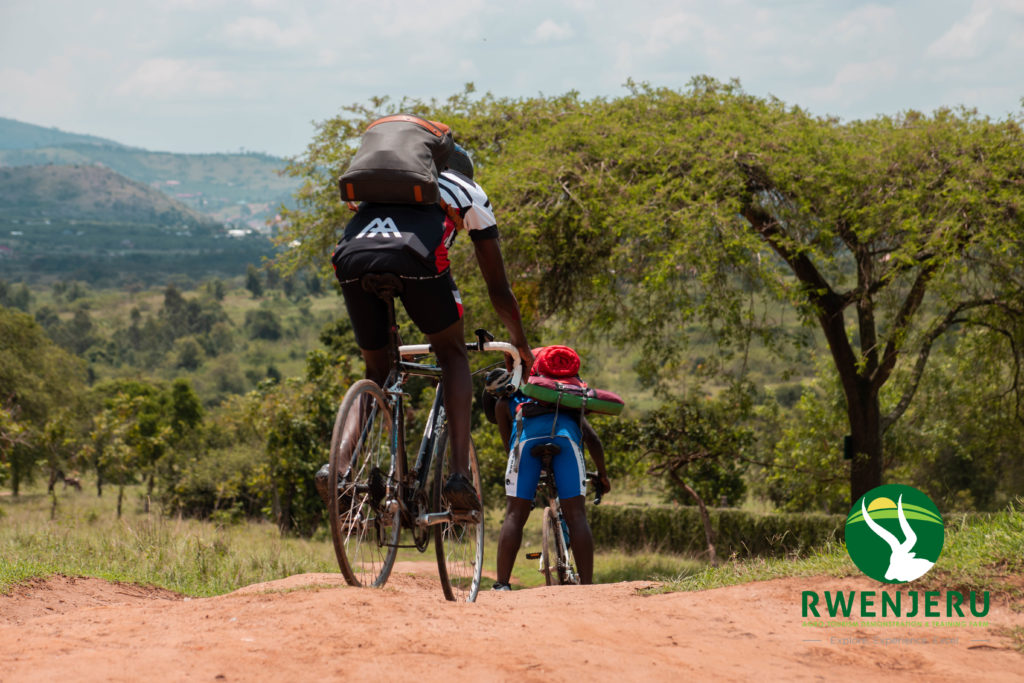



Rwenjeru farm is an icon of tourism in Mbarara. The farm offers breath-taking views of some of the most historical hills in the region. Indeed, the name Rwenjeru loosely translates “the one (area) of white herds of cattle” – on account of the King (Omugabe) having herds of white Ankole cattle in the area. The farm overlooks the famous Igongo hill where 3 kings of the region; Olimi I Rwitamahanga of Bunyoro, Kabaka Nakibinge of Buganda and Omugabe Ntare Kitabanyoro battled during the solar eclipse of 1520 AD for prized Ankole Watusi Longhorned cattle. The farm lies in the outskirts of L. Mburo National Park and it is not uncommon for some of the animals to wonder into the farm from the park.



Birding
Being close to L.Mburo National Park – an Important Birding Area in Uganda and E. Africa at large with over 310 bird species recorded – Rwenjeru farm offers a hustle-free opportunity to sight some rare birds. The farm has a recorded checklist of birds sighted at the farm that tourists can enjoy with our birding guide available when booked. The farm is a prime area to view most acacia-dwelling birds including the bare-faced go-away bird, plantain eater, brown parrot, white-headed barbet and many others.
Bonfire Camping
Rwenjeru hills set prime bonfire camping spots in Mbarara. The farm has dedicated staff ready to offer great service for all your camping needs including; setting up the tents; setting up and maintain the bon fire; bull and goat roasting; music and vibes; and the best stories and legends of the land told by local historians. Campers can come with their tents and set up at the farm at affordable fees or they can select their tents of choice at the farm; double or single.
Farm Tour
The farm offers a great many things to tour; the farm has over 200 heads of cattle; the Ankole Longhorn and exotic breeds of dairy cattle, over 100 goats, sheep, chicken, rabbits, apiary, fish, horticulture; irrigation systems, a world-class water harvesting and management system, mechanized agriculture among others. Rwenjeru farm is also dotted with a wide-range of acacia woodland with each named along with its traditional and modern uses.



Sport Fishing
Rwenjeru farm has wide fish ponds that have mud fish, cat fish among others that visitors can enjoy in fishing activities after which visitors can fry their catch and enjoy truly organic meals. Visitors can select their equipment of choice to do their fishing activities while perennial campers who move with their gear are also allowed to participate.
Community and Rural Tourism
The Rwenjeru community is a renowned tourism hotspot for many tourists; both domestic and foreign – village walks offer a great opportunity to have a glimpse in the traditional lifestyle of the people of Ankole (or rather Nkore) The area is one of the few villages in the region where there has been harmonious co-existence of the different traditional occupations of the Banyankole; the pastoralists (Abariisa/ Abahima), the cultivators (Abahingi/Abairu), Metal workers (Abaheesi), Artisans (Abatwa/abanogozi) and hunters(abahigi) – on account of the abundant game in the area. Luckily, all these occupations still survive even in the modern age and visitors are able to see how all these groups related. The village has also moved to modern age with schools, churches and other changes globalization and the internet age has brought. Rwenjeru farm works closely with the community to offer visitors an opportunity to travel back in time and see how society has progressed since the times of the Bacwezi
Trekking, Hiking and biking
Rwenjeru is dotted with the most spectacular hills; steep and sloping; rich in history, natural endowments and beautiful scenery. The farm is a common site for members of the Mbarara Cycling Club to do their biking and camping activities to enjoy special country experiences. Trekkers and hikers enjoy their treks/hikes with village guides taking them around while listening to the most fascinating stories about the historical times of the Bacwezi. There are still stories of the people saying they see the Bacwezi bon fires at night as the legendary mythical demi-gods graze their cattle at night on the highest hill plateau in the village
